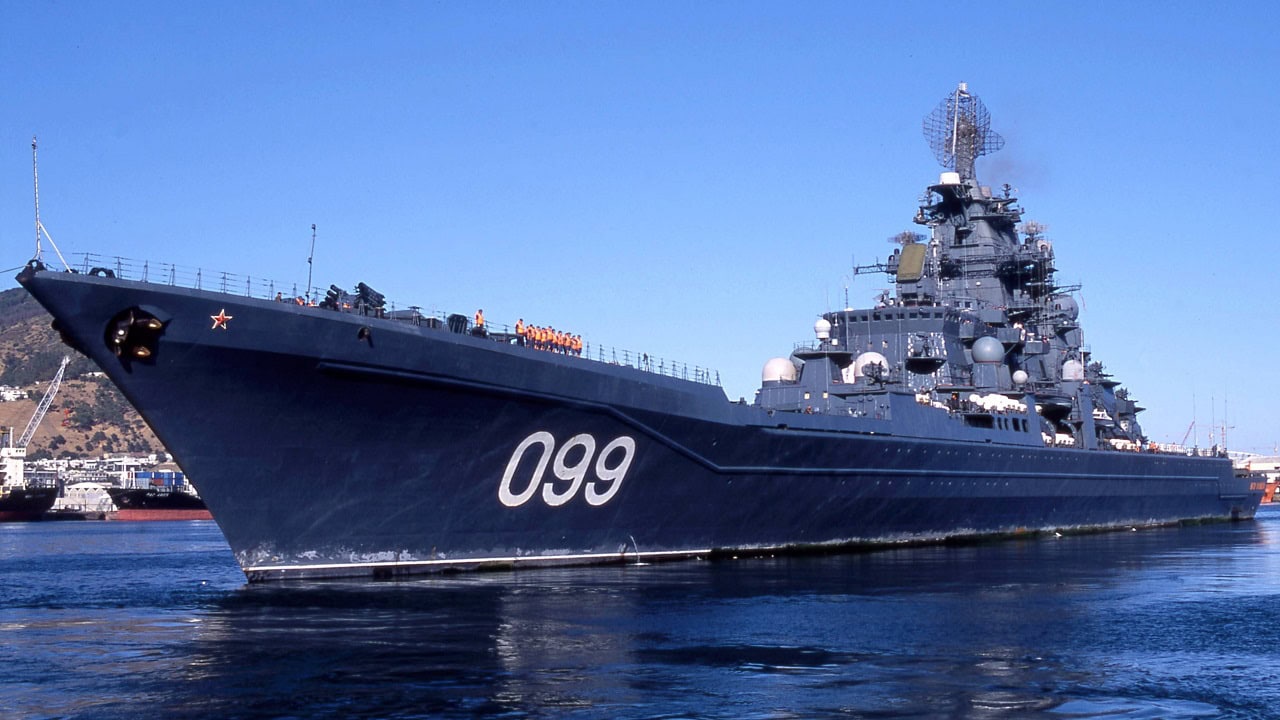After Grain Deal, Russia’s Blockade Continues. What will the Russian Navy Do About It? – While Russia’s running blockade of Ukraine’s southwestern coast has continued mostly uninterrupted throughout its invasion of Ukraine, the Russian Navy’s Black Sea Fleet has nonetheless found a serious opponent in Ukraine’s coastal defenses.
How is the Blockade Being Conducted? Enter the Russian Navy
Russia’s Black Sea Fleet, headquartered in the port of Sevastopol in Crimea (where it was based even before Russia’s seizure of the peninsula), has predictably taken the lead in blockading Ukraine’s Black Sea coast, including the ports of Odesa and Mykolaiv.
Before the February 24 invasion, Russia began to concentrate naval assets in the Black Sea. Under the guise of the “Allied Resolve-2022’ joint exercises with (landlocked) Belarus, Russia conducted exercises in the Black and Mediterranean seas over the course of the exercise’s duration between February 10 and 20.
As part of such exercises, Russia restricted ship traffic through the Kerch Strait and in the Azov Sea, leaving ports such as Mariupol and Berdiansk – which were at that point still under Ukrainian control – effectively cut off.
At the start of the war, Russia’s Black Sea fleet included a range of frigates, corvettes, amphibious vessels, the guided-missile cruiser Moskva, and a variety of support vessels. After the Kilo-class attack submarine Rostov-na-Donu was returned to the Black Sea in the weeks prior to the invasion after serving in the Mediterranean, roughly six Kilo-class submarines have played a supporting role in the blockade and have supported Russian operations on land with their Kalibr cruise missile armament.
In the days following the invasion, Russia attempted to move a frigate, two destroyers, and an intelligence-gathering ship through the Bosporus and Dardanelles to support its blockade and naval war in the Black Sea. However, this action was blocked by Turkey under the terms of the Montreux Convention, a 1936 agreement which allows Turkey to restrict the transit of military vessels not based on the Black Sea into the body of water in times of war. In effect this means that Russia’s blockade fleet is effectively limited to the ships it had in the Black Sea before its invasion, despite some early vacillation by Ankara on the subject.
While international observers noted the emergence of a Russian blockade of Ukraine’s coast in the first days and weeks of the invasion, Russia’s Black Sea fleet was not prepared for Ukraine to have the capability to contest Moscow’s lockdown of its coast. The sinking of the Moskva on April 14 is a particularly illuminating example of this. Whether by relying on incomplete intelligence or pure hubris, Russian naval leaders evidently did not expect Ukrainian forces to be able to strike the Moskva with its domestically-produced Neptune missiles, or that Ukraine would be able to reportedly draw on U.S. intelligence to locate the vessel.
Despite this setback, Russia’s naval blockade has remained tight enough to necessitate the negotiation of an agreement to facilitate Ukrainian grain exports out of its own ports to customers in third countries. Disruptions to food security which have come as a result have made Russia’s blockade arguably one of the most globally consequential aspects of the invasion thus far.
Ukrainian Drone Attack of Sevastopol
Black Sea Fleet ships taking part in Russia’s blockade of Ukraine’s southwestern coast are not the only elements of the Russian navy which are more at risk of Ukrainian attack than Russian naval leaders bargained for. On July 31, Mikhail Razvozhayev, the Russian-appointed head of Sevastopol, reported that several people were injured in a drone attack on the headquarters of the Black Sea Fleet in the city, which he attributed to Ukraine. The Black Sea fleet claimed that the attack, which Razvozhayev claimed wounded six people, was conducted by a low-explosive drone. Ukrainian officials denied that they had any role in the attack, which caused Navy Day celebrations planned for the 31st to be canceled. A Ukrainian military spokeswoman denied that Ukraine had targeted the headquarters, but insisted that such a strike would have been legitimate and within the scope of Ukrainian self-defense operations, since Kyiv does not recognize Russia’s seizure of Sevastopol and the rest of Crimea in 2014.
What is the Future of the Blockade?
As a result of incidents such as the sinking of the Moskva, the July 31 strike on Sevastopol, and even Russia being forced to withdraw its forces from Snake Island, Russia’s Black Sea fleet has been forced to patrol further and further from the Ukrainian coast and sail less frequently. While Russian corvettes and patrol boats operating in the southern black sea have been forced to pick up much of the slack, Moscow’s blockade remains in place, and there is little Ukraine can do to challenge this state of affairs beyond challenging Russian ships which venture too close to the Ukrainian coast. The delivery in May of Harpoon anti-ship missiles from Denmark further compounds this trend and practically guarantees that Russia will be forced to rely on a blockade operating far from the Ukrainian coast for the remainder of the war.
Even though Ukraine does not have the ability to entirely break Russia’s current blockade, its continual harrying of the Russian Black Sea Fleet when it gets too bold imposes a ceiling on what the Russian navy can and cannot do as part of its blockade. However, just as on land, both parties appear to be settling into a stalemate where major upsets are harder to imagine.
Wesley Culp is a Research Fellow at the Center for the Study of the Presidency and Congress. He regularly writes on Russian and Eurasian leadership and national security topics and has been published in The Hill as well as in the Diplomatic Courier. He can be found on Twitter @WesleyJCulp.

